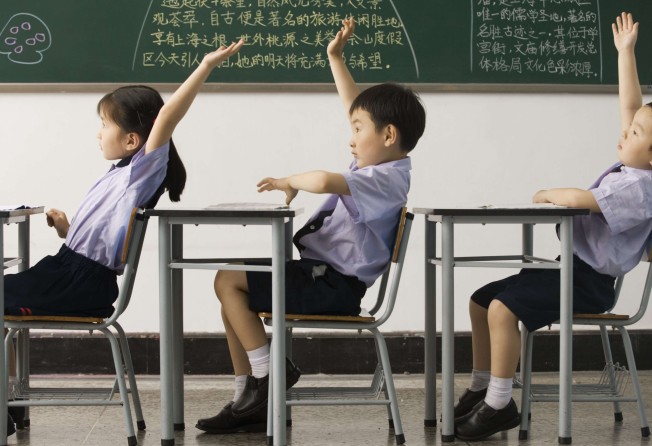
Markets divided on true effects of China’s new private school law
Uncertainty remains over how new rules will affect profit-making schools

China’s banning of “for-profit” private schools from enrolling students from primary to junior high school – the period covered by the country’s nine-year compulsory education programme – has received mixed views among analysts covering the sector.
Compulsory education is a nationwide free system, supported by funding from the central Chinese government.
Zhu Zhiwen, the vice minister of education, told a news conference on Monday that the system “is a public service, that must be provided by the government”, before adding that “profit-led private schools [effectively, those making a profit] are unsuitable to be part of this free education programme”.
The amended law on China’s private education system becomes effective on September 1 next year, but finer details on what effects the laws with have on profit-making schools remain largely unclear.
The move to create more rigid regulation of private education industry had largely been prompted by a rapid growth in the number of parents choosing to educate their children privately, as the population grows and incomes continue to rise.
Zhu stressed that private schools are still allowed to offer diversified, market-oriented paid educational services, but only if they comply with the law.
China rolled out its nine-year compulsory education programme in the 1980s. Parents are required to send their school-age children to study, and funding for public schools is guaranteed by the state.
After three decades, the programme now covers most of the country, but demand for an alternative has also emerged.

But the growing middle classes have come to expect something better, while many newcomers to big cities are denied access to public schools. Without a city “hukou,” or household registration, the children of migrants can only enrol in public schools in their home towns.
Official Ministry of Education data shows there are around 162,700 private schools nationally with some 45.7 million students – but until now the grouping was loosely regulated.
China Insights Consultancy estimates that private education in China is an 800 billion yuan market and is expected to maintain an average growth rate of 15 per cent over the next few years.
Currently, none of the country’s registered private primary and junior high schools are for-profit, and the law will only have an impact on those who now want to turn their schools into profit-led establishments, or existing ones.
But already a rising number of private schools have been created using the so-called variable interest entity (VIE) structure – a controversial framework intended to allow particularly foreign investment in, and create profit from, sensitive Chinese sectors, including education, through a series of contracts rather than direct legal ownership.
Although seen as a clarifying development for many areas of the education system, analysts are worried about the uncertainties that have been created until the law comes into force in a year, and the likely restrictions that will be placed on private companies, some of whom will have to make wide-ranging changes to their operations to comply with the new national guidelines.
“Compulsory private schools will have no choice but to register as a non-profit model, according to the new law,” said Wei Li, an analyst from Sinolink Securities.
Market attention is now focusing on whether the revised law will impose tougher regulations on the ones who are operating already under more vague sets of policies and rules, such as VIE structure
“But market attention is now focusing on whether the revised law will impose tougher regulations on the ones who are operating already under more vague sets of policies and rules, such as VIE structure.”
Two Hong Kong listed education companies offer the compulsory curriculum, including Hong Kong-listed China Maple Leaf Educational, and Virscend Education.
Both are run as profit-making operations, reportable to shareholders, and run using the VIE structure.
Maple Leaf previously operated non-profit private schools, before becoming the first to gain a listing in 2014. There are a number of schools now lined up for IPO.
China Maple Leaf Educational said in a statement on November 1 that the group is expected to record an increase of not less than 40 per cent in net profit for year ended 31 august 2016.
Over the coming year, the finer details of the new law compulsory private schools are expected to be published, but Wei said already the uncertainty on how the government will deal with existing monetised assets is spooking investors.
A report on Xinhua said the law’s definition of what actually is a “for-profit” school is far from straightforward, since even some non-profit schools charge prohibitive fees.
Keystone Academy, an school in Beijing, charges annual tuition of over 200,000 yuan per student, four times the disposable income of an average Beijinger in 2015, said Xinhau.
Analysts at China Merchants Securities have said they believe it unlikely the government will tamper with its current VIE laws, given the Ministry of Education has no jurisdiction over VIE laws which exist under the Foreign Investment Act.
Alex Fan, head of research at GF Securities (Hong Kong) Brokerage, expects the amended law to significantly boost the Chinese education industry asset securitisation, and could actually allow China’s education industry to attract more private capital, as it effectively legitimates the profit-led model of (non-compulsory) private schools.
“The obstacles faced by private education institutions looking to launch an IPO, or backdoor listing have been removed with the amended law’s implementation,” he added.
Guosen Securities echoes that view, with its analysts Zeng Guang and Zhong Xiao predicting that the two years after the new law’s effective day in September 2017, “will be a peak time for mergers and acquisitions, corporation restructuring as well as company listings in China’s non-compulsory education segment”.
Wei Li from Sinolink Securities, nevertheless, warns profit-making schools will receive less support on tax and land policy, because they will now have to follow the country’s business and company laws.
He also expects non profit-making private schools to enjoy more favourable policy support, despite being assured they will receive equal policies as public schools in land use and taxation.
Other issues could prove complicated and expensive for the profit making firms, including the guarantee of salary and welfare levels, and that social insurance contributions are make for their employees.